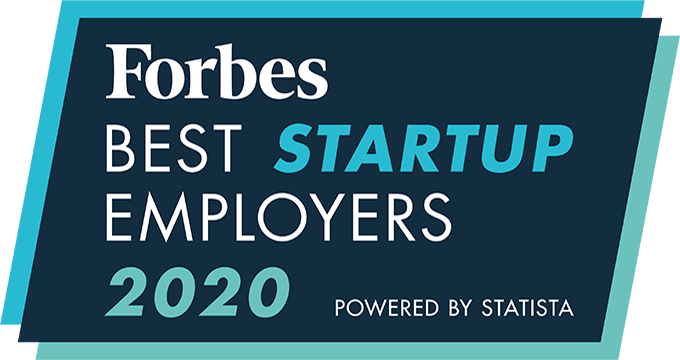Millennials have been blamed of ruining certain American staples, with the gamut running from diamonds to department stores. And sure, they have been accused of killing the 9 to 5 work week, however, many employers can look past that, having realized that their education, tech-savviness, and fresh vision can be key to a company’s success.
There are plenty of millennials out there, as they are projected to be the United States’ largest living adult generation in 2019. According to the Pew Research Center, 35% of the American labor workforce was comprised of millennials in 2017, with 56 million millennials working or looking for work (which is almost 3 million more than Generation Xers and 15 million more than Baby Boomers).
The difficulty lies not with finding millennials, but rather with attracting them to and keeping them in your organization.
Of course, millennials are people too, so a clear job posting, competitive salary, inspiring mission statement, and great culture are all still needed to place the millennials you want. But, if you want the very top talent, you need to go beyond all the usual requirements. Here are a few suggestions:
Branding
Ron Piccolo, Cornell Professor of Management, explains that “Millennials expect digital relevancy.” Millennials are the first generation to grow up with the internet as an everyday part of their lives, so often the first thing a millennial will do before beginning an application is to google the company. If they find little information or an outdated website with a poor layout, they are going to be put off immediately, afraid that the business is behind the times.
Remember that they are the first to embrace and take advantage of technology, so they will want to bring this to their work and expect it from their employers. As Piccolo says, it is vital to “invest not only in how you engage clients and consumers online but prospective employees as well.”
They’re going to Google first and ask questions second. Be sure you appeal to this crowd the same ways they look for you!
Flexibility
Joan Kuhl, author and Founder/President of Why Millennials Matter, argues that flexibility is one of the most important things millennials are seeking in the workplace.
Flexibility here means the opportunity to work where they want and how they want. When technology company Qualtrics did research into millennials, it found that they are not as focused on some of the things older generations valued, like fixed work schedules and dress codes. Millennials, rather, are more focused on the end results.
This means that they may work unconventional hours, dress more relaxed, and be more interested in working remotely than previous employees.
Kuhl’s conversations with millennials also show that they value openness, strong communication, and the ability to adapt to different styles of connecting. This means that they are not looking for a work-a-holic boss who expects them to devote every minute of their life to the job, but rather those who show a balanced commitment to both their professional and personal life.
It’s all about being flexible. Work with them on finding out how they produce the best end results, and they’ll want to work for you!
Transparency
Understanding a company’s vision and the direction in which they are heading is very important to millennials. They want to feel like the work they are doing is worthwhile, often not only for the company but for society at large, and that they are able to meaningfully participate in the company’s decision-making procedures.
According to a 2018 Deloitte survey, there is a clear, negative shift in millennials’ feelings about business’ motivations and ethics. Less than half of millennials believe businesses behave ethically (48 percent vs 65 percent in 2017) and that business leaders are committed to helping improve society (47 percent vs 62 percent in 2017).
To help combat these feelings, explain clearly where your company aims to be in a year, five years, a decade, and the trade-offs you may need to make in order to achieve these goals. There is little point in hiring a millennial only to lose them shortly afterward because they cannot get on board with the company’s philosophies.
If you want them to stay, you need to be honest in what you promise and be sure to deliver it.
Diversity
Millennials actively embrace a diverse workplace culture, and often want to see themselves represented somewhere. Being the tech-savvy individuals they are, the number one place prospective employees go to first when researching a company is their corporate website. If, when they look at the Executive Leadership and Board Members pages of your website, they only see a dozen white men and broad language about the business’s purpose, they are going to assume it is an accurate reflection of the company’s workforce, customers, and goals.
Intentionally bringing varied perspectives into your business/department by giving a voice to employees of different ages, races, genders, and more is essential. The same Deloitte survey shows that millennials highly value and are most willing to remain with companies that have diverse management teams, so make sure yours is one of them.
A diverse leadership team, staff, and clients are going to keep millennials interested in you and your business.
Feedback & Promotions
It may be common practice to offer employees annual or biannual reviews, but millennials are interested in much faster feedback and opportunities to develop. Instead of an appraisal, they want an ongoing conversation about their work.
This should not be a surprise. Given where they are currently at in life, millennials think about their role as a stepping stone and a growth opportunity. According to the Harvard Business Review, millennials want to feel “deeply committed to their role and to work for a manager who will invest in their development,” which is not that different from what other generations wanted. The difference here is the fact that they place a greater emphasis on opportunities to learn and grow and opportunities for job advancement.
It can be tempting to “job hop” as a millennial if they can earn a higher salary, grow their career, get a change of scenery, and/or find a better fit at a different company. If you want to hang on to your hard-working millennials, you must show them regularly that there is a clear career path available for them within the company.
If you put in time to help them grow, they will want to stay and let their skills expand exponentially.








